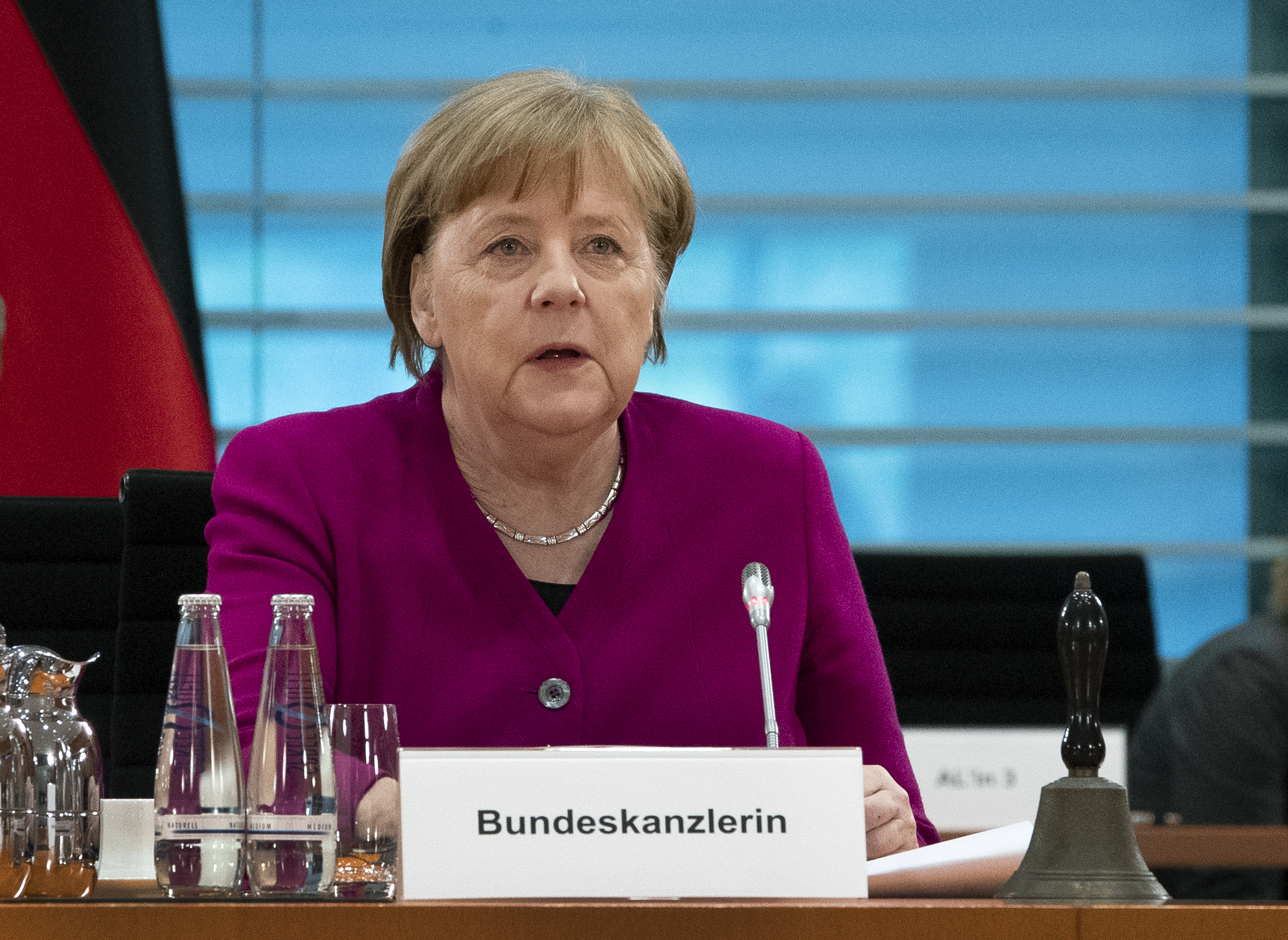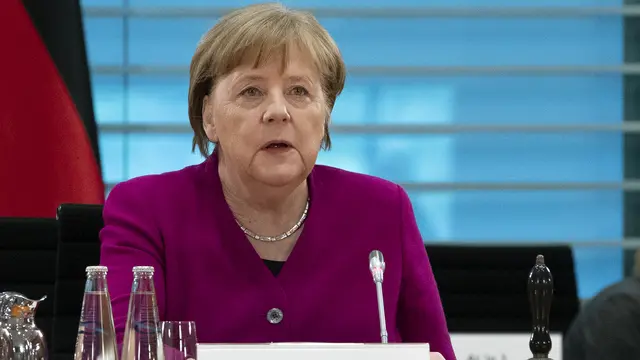
Angela Merkel's government are moving cautiously into a post-lockdown phase. AP
Germany is aiming to maintain the widely held view that it has handled the coronavirus outbreak well during the post-lockdown phase.
Managing domestic infections will remain the priority, with effective testing and tracing still very much the focus. On that front, this country has a head-start.
Easing – and who knows maybe even re-tightening – its lockdown measures, in the right ways at the correct times, is a tightrope this country walks along a few steps ahead of others in Europe. Its successes – and any possible failures – will be closely monitored by those in their wake.
Funding the global effort to fight this virus and the respiratory disease it causes is becoming an increasing part of the German strategy too. This is because it sees one country left behind – in the context of the health emergency at least – as potentially a threat to all.
So, on Saturday, German Chancellor Angela Merkel announced her government would be making a "significant" contribution of funds to a global alliance, being assembled by the World Health Organization (WHO), to accelerate work on developing more reliable tests, drugs and ultimately a vaccine.
Merkel said in her weekly podcast that the money should be used to roll out any breakthroughs evenly around the world, if and when they come. Perhaps with some of the giants of German industry involved.
In eras gone by, the U.S. may have led the west in this regard. Now, instead, the WHO's largest financial contributor is pulling funding, angered at what it perceives as an institutional bias towards China.
Germany is stepping up to try and fill part of that hole.
**Check out **
The Pandemic Playbook
, CGTN Europe's major investigation into the lessons learnt from COVID-19
 简体中文
简体中文

